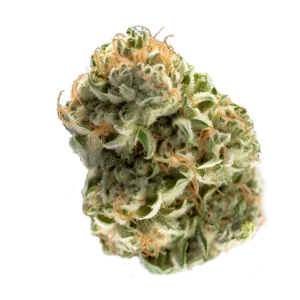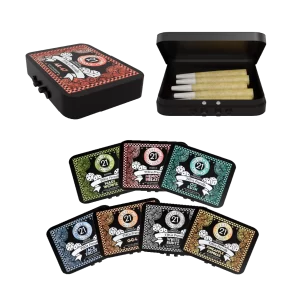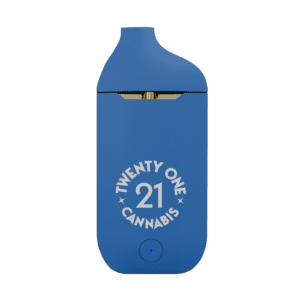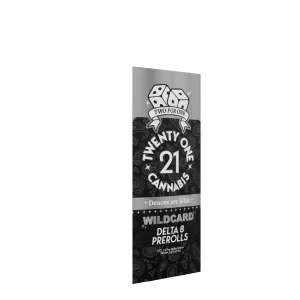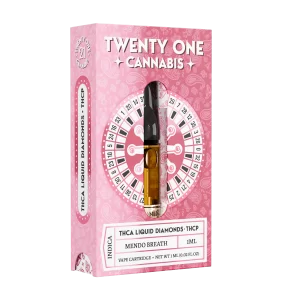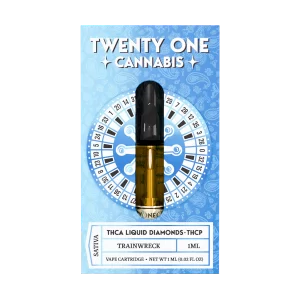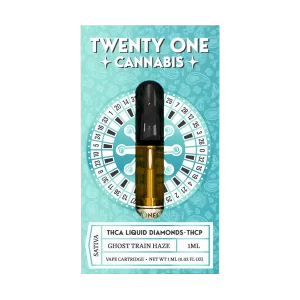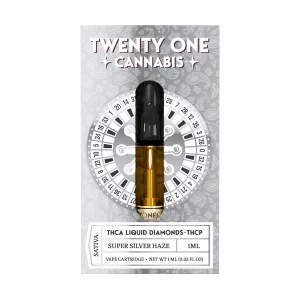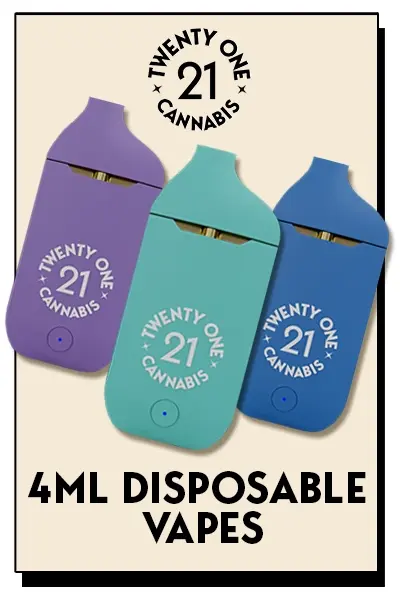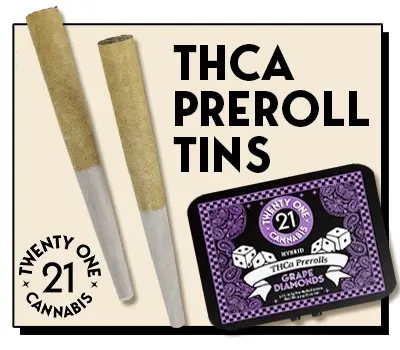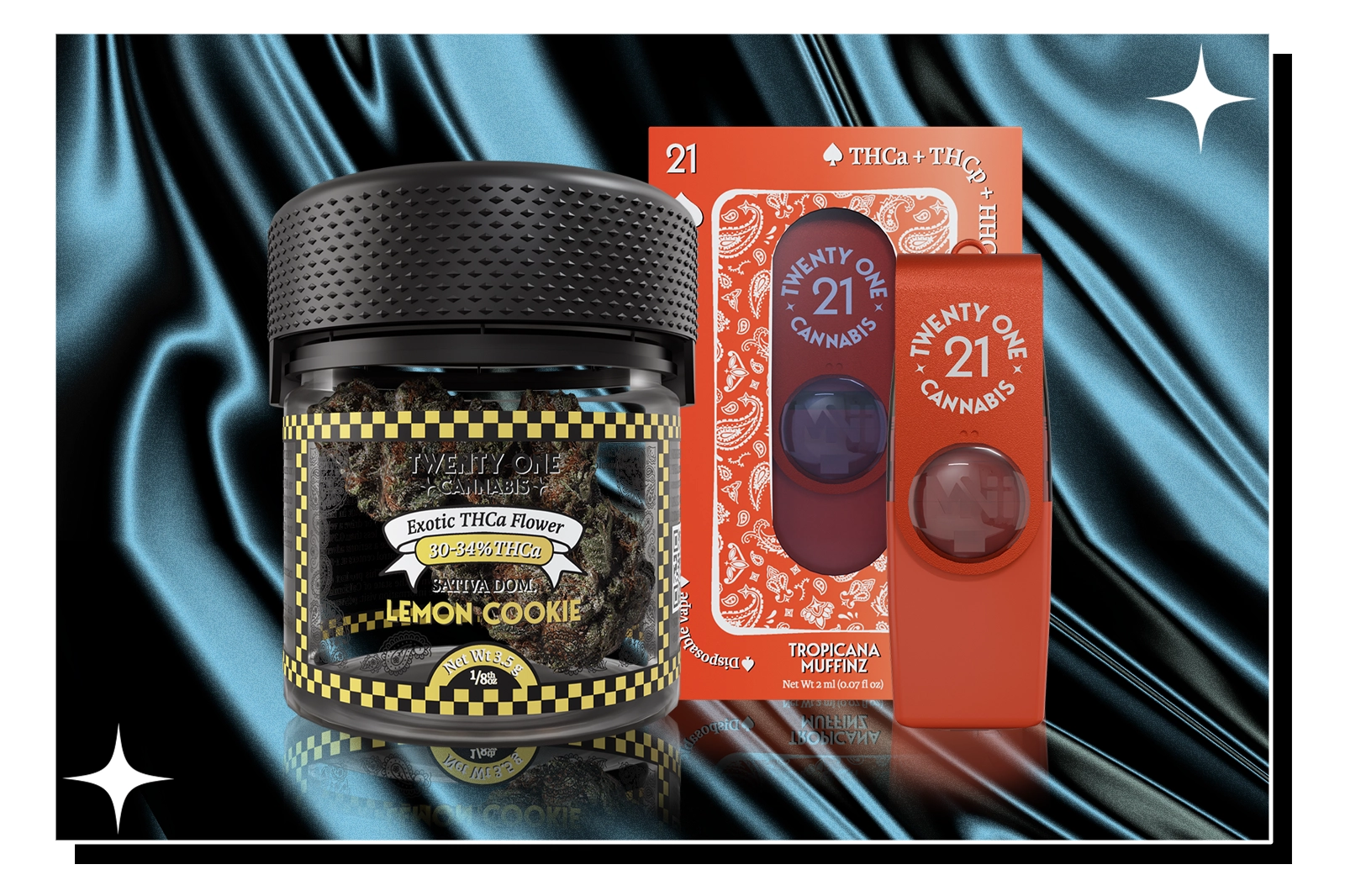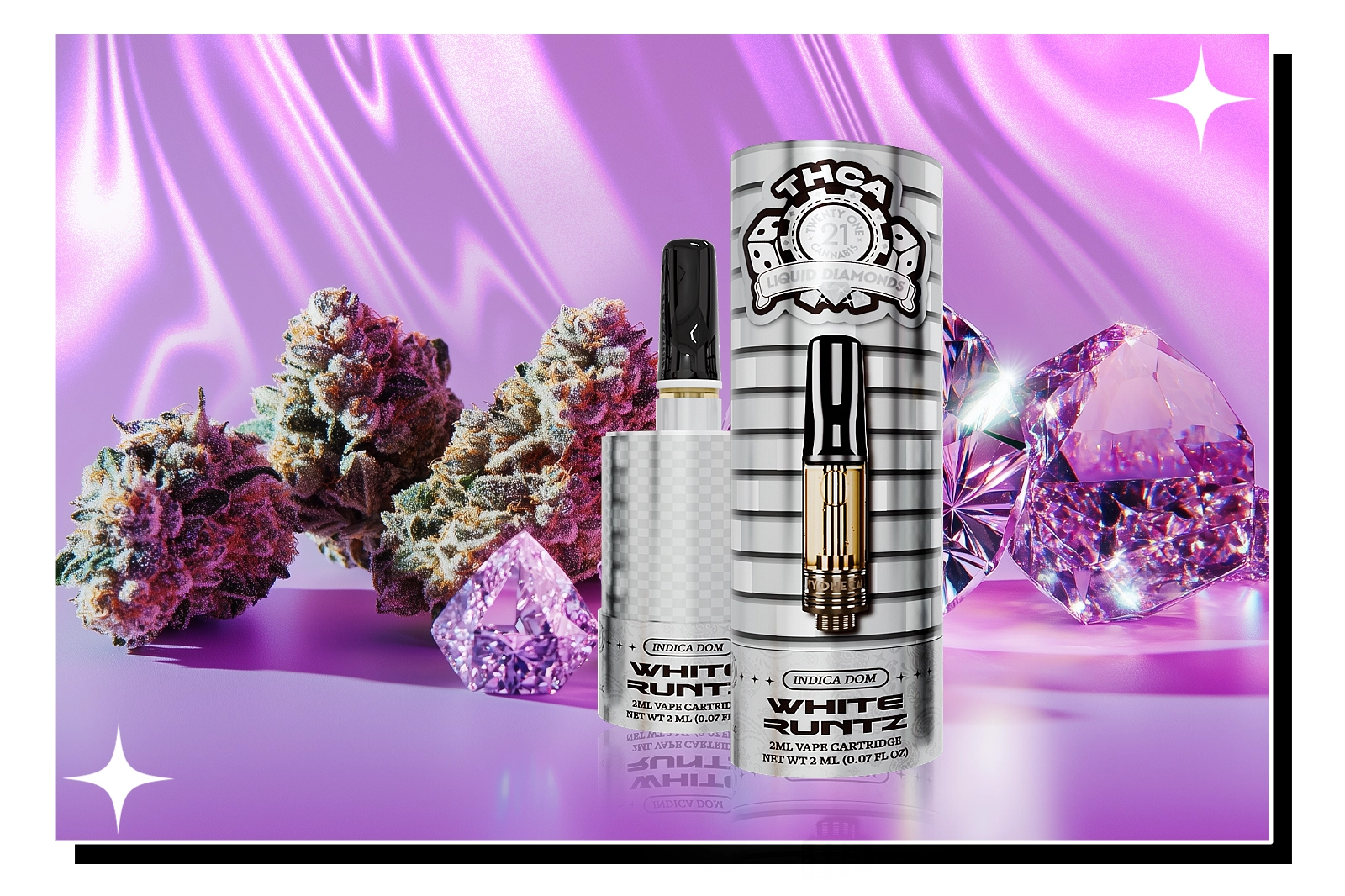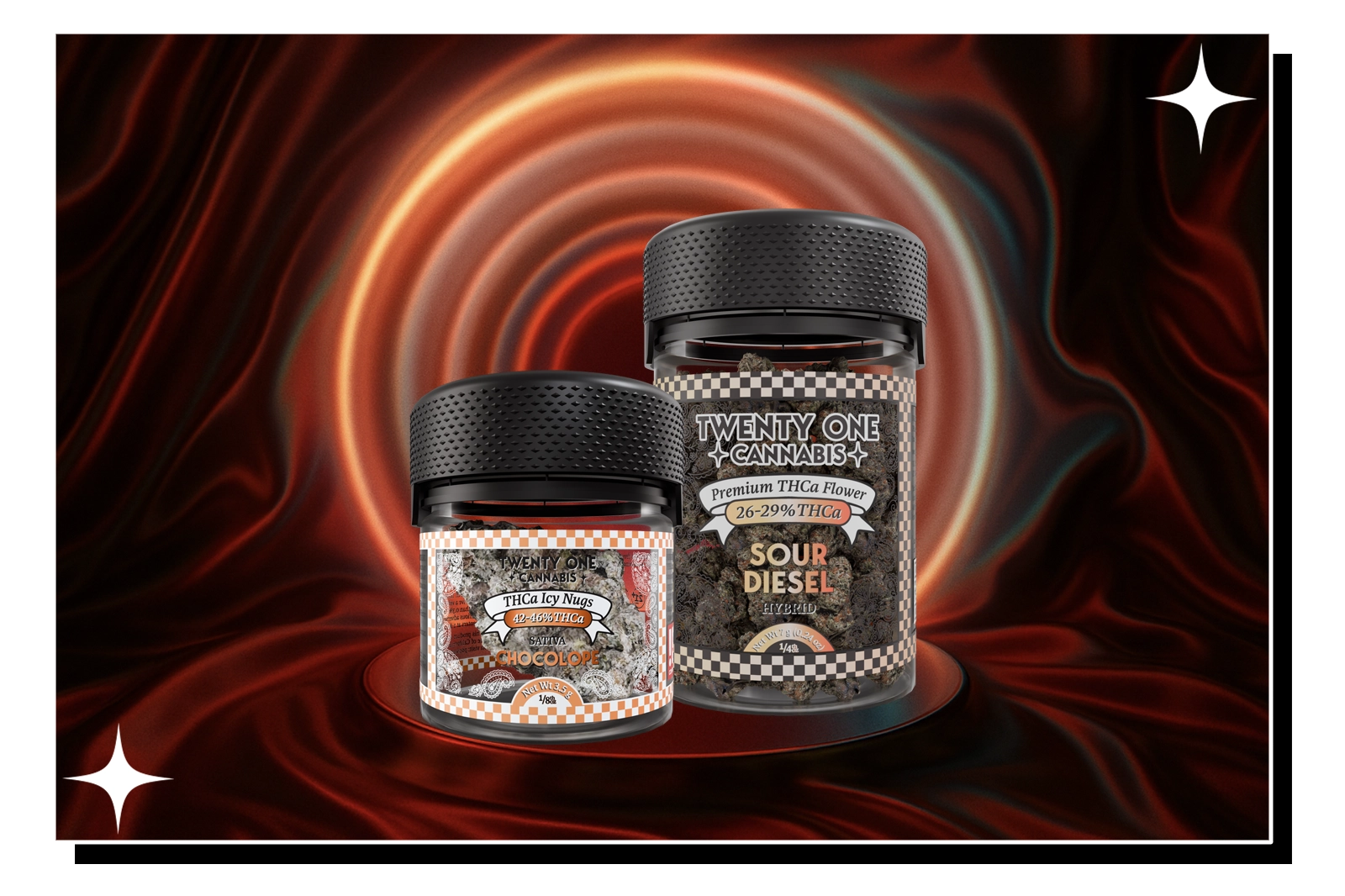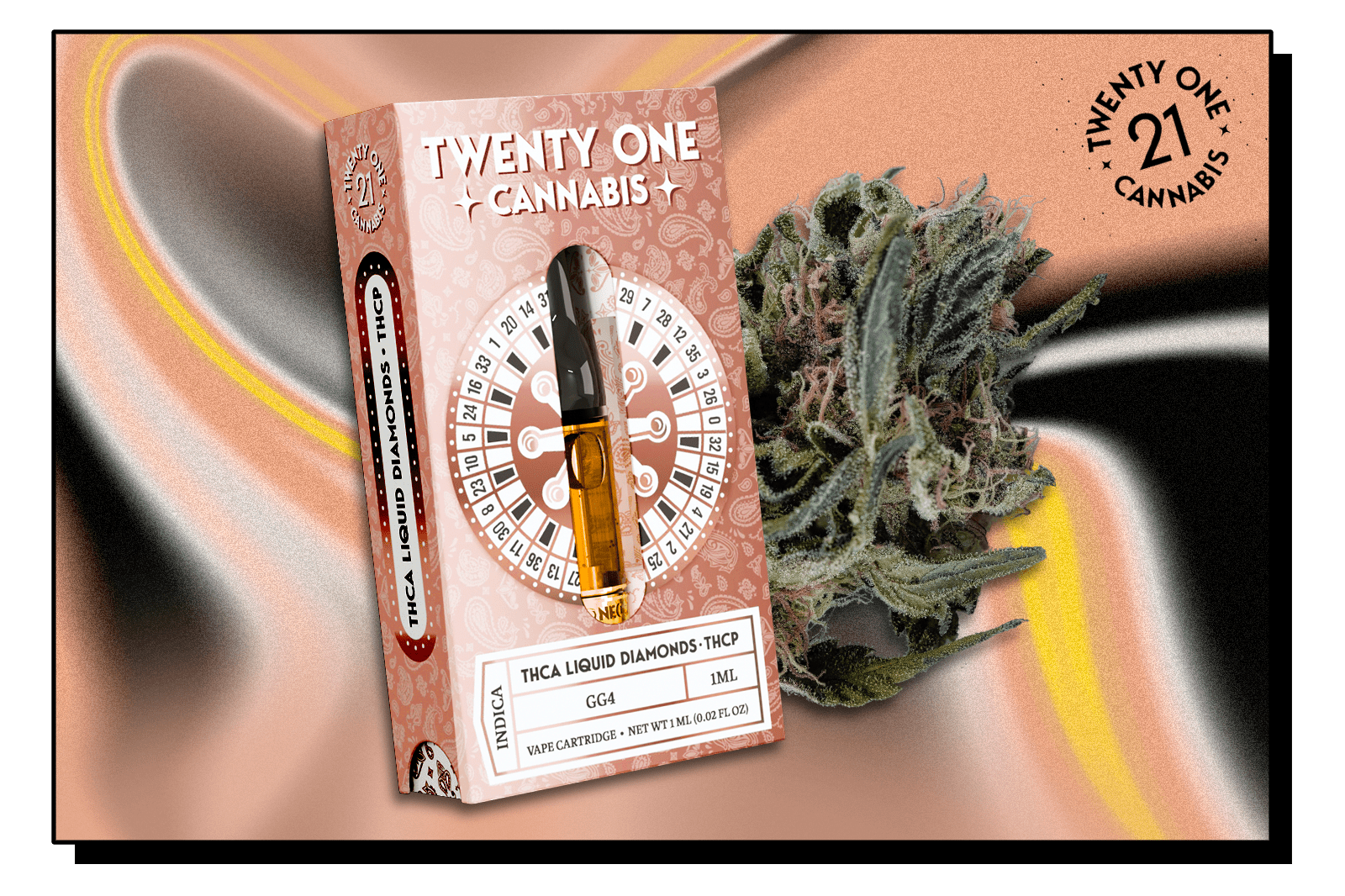
THCp vs Delta-9: Is THCp Stronger Than Delta-9?
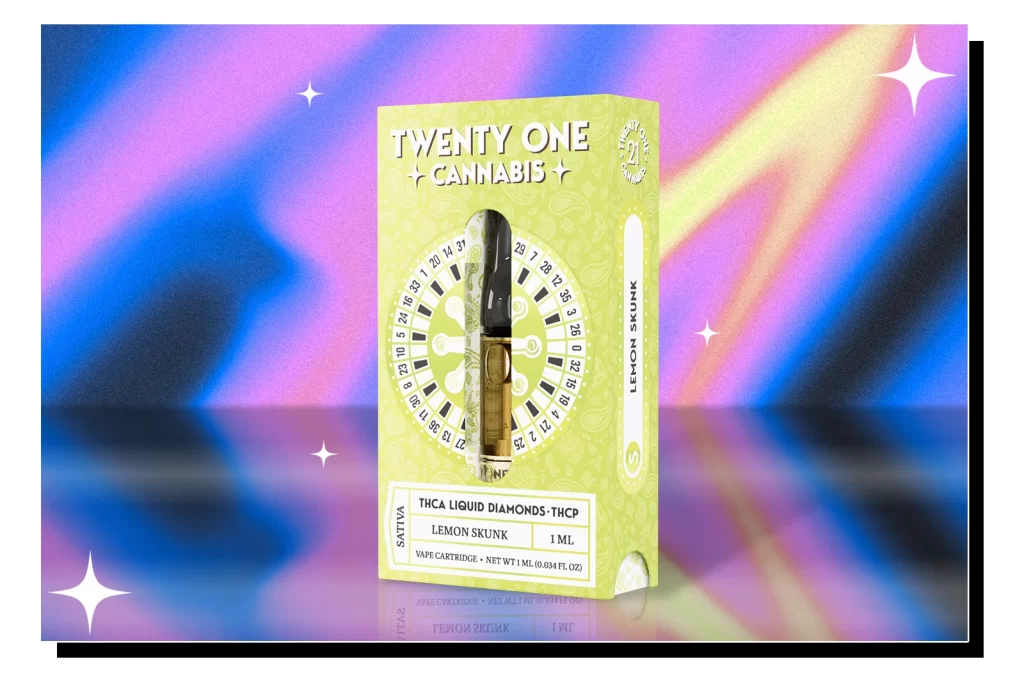
In this Article
The High Rollers Source for THCa Delta 8 HHC
When it comes to cannabinoids, THCp (tetrahydrocannabiphorol) and Delta-9 THC are two compounds that stand out for their potency and effects. While Delta-9 is widely known as the primary psychoactive component in cannabis, THCp is a newer discovery that has sparked interest due to its potentially stronger binding affinity to CB1 receptors.
The key difference between the two lies in their molecular structures, which influence how they interact with the endocannabinoid system (ECS) and ultimately determine their effects. Some users report that THCp produces a more intense and longer-lasting experience compared to Delta-9, but how significant is this difference? And what does it mean for those who already have a high tolerance to THC?
Here’s everything you need to know about THCp and Delta-9, with a comparison of the effects and benefits you can expect from both of them.
Key Takeaways
- THCp is significantly more potent than Delta-9 THC, binding to CB1 receptors up to 33 times more effectively, leading to stronger effects.
- Delta-9 THC is widely researched and used for pain relief, appetite stimulation, and relaxation, while THCp’s therapeutic benefits are still being studied.
- THCp produces a more intense and longer-lasting high, but its effects vary based on individual tolerance and dosage.
- Legal status for these cannabinoids is different. Hemp-derived Delta-9 (≤0.3%) is federally legal, while THCp exists in a gray area under the 2018 Farm Bill.
- Consumption methods include vaping, edibles, tinctures, and topicals, though THCp products are less widely available than Delta-9.
- Shop premium, lab-tested products at Twenty One Cannabis — trusted for quality, safety, and cutting-edge cannabinoid innovation. Shop our collection of products today!
What Is Delta-9 THC?
Delta-9 THC, or tetrahydrocannabinol, is the most prevalent and recognized psychoactive substance in cannabis. It attaches to CB1 receptors in the brain and nervous system, resulting in feelings of euphoria, relaxation, and changes in sensory perception. Both marijuana and hemp plants naturally contain Delta-9 THC.
Delta-9 THC has historically been a cornerstone of cannabis use for both medicinal and recreational purposes. Across various cultures, it has long been employed for pain relief, stimulating appetite, and inducing relaxation. Today, it continues to be the most studied and widely used cannabinoid.
Beyond its psychoactive effects, Delta-9 THC plays a significant role in cannabis’s medicinal attributes. It may offer advantages for pain management, sleep disorders, and appetite regulation.
What Is THCp?
THCp, or tetrahydrocannabiphorol, was discovered by Italian researchers in 2019. It has a longer alkyl side chain than Delta-9 THC, enhancing its ability to bind to CB1 receptors — up to 33 times more effectively.
While THCp is found in trace amounts in some cannabis strains, it often requires synthetic production due to its scarcity. The process generally begins with CBD derived from hemp, which is chemically modified to produce THCp.
THCp’s unique structure and binding efficiency make it significantly more psychoactive than Delta-9 THC. Although research on THCp is still in its early stages, preliminary findings indicate it could intensify effects like euphoria, relaxation, and sensory perception.
THCp vs Delta-9 – What’s the Difference?
While both compounds share similarities, their differences in structure, potency, effects, and legal status set them apart. Understanding these differences is essential for those considering THCp as an alternative or complement to Delta-9.
Chemical Structure Differences
The primary difference between THCp and Delta-9 lies in their molecular structure. Both cannabinoids share a similar base structure, but THCp has a longer alkyl side chain, which plays a significant role in how it interacts with cannabinoid receptors.
Delta-9 THC has a five-carbon side chain, which is long enough to effectively bind to CB1 receptors in the brain and nervous system. This interaction is what produces the psychoactive effects commonly associated with cannabis use.
THCp, on the other hand, has a seven-carbon side chain. This extended structure enhances its binding affinity to CB1 receptors, potentially making it significantly more potent than Delta-9.
Research suggests that THCp binds to these receptors up to 33 times more effectively than Delta-9, which may explain why it is reported to produce stronger effects even at lower doses.
Receptor Binding and Potency
The binding affinity of a cannabinoid determines how effectively it interacts with the CB1 and CB2 receptors of the ECS. These receptors regulate various physiological processes, including mood, pain perception, and appetite.
Since THCp has a stronger binding affinity to CB1 receptors, it may produce more intense psychoactive effects compared to Delta-9. While this does not necessarily mean it is 33 times more intoxicating, it does suggest that THCp could produce noticeable effects at much lower doses.
Users often report that THCp delivers a longer-lasting and more potent high compared to Delta-9, even when consumed in smaller amounts.
Effects
The differences in potency and receptor binding naturally lead to variations in how THCp and Delta-9 affect users. While both cannabinoids induce psychoactive experiences, the intensity and nature of these experiences may differ.
Delta-9 THC is known for its euphoric, relaxing, and sometimes sedative effects. It can enhance mood, increase appetite, and, in some cases, cause anxiety or paranoia at high doses.
THCp, due to its stronger receptor binding, is often described as producing a stronger cerebral high with more pronounced euphoria. Some users report that THCp feels clearer and more energetic, while others experience heavier sedation and body relaxation. The variability in user reports suggests that the effects of THCp may depend more on individual tolerance, dosage, and method of consumption.
Therapeutic Effects

Beyond recreational use, both THCp and Delta-9 have therapeutic potential, though research on THCp is still in its early stages. Their ability to interact with the ECS makes them promising candidates for various medical applications.
THCp’s Therapeutic Effects
Although THCp was only discovered in 2019, preliminary research suggests that its stronger receptor binding could make it effective for certain conditions where Delta-9 is already used.
However, it is important to note that most of the benefits of THCp you’ll read on this blog (and other sites) come from anecdotal evidence. Research on THCp is still scarce in comparison to Delta-9, which is the single most well-researched cannabinoid in the cannabis market.
Potential therapeutic applications of THCp include:
- Pain Management: Since CB1 receptor activation is associated with pain relief, THCp may have a strong analgesic effect, possibly exceeding that of Delta-9.
- Insomnia Relief: Users report that THCp can induce deeper relaxation, making it a possible option for those struggling with sleep disorders.
- Anti-Nausea Effects: THCp may help reduce nausea, making it a potential candidate for chemotherapy-related symptoms.
Delta-9’s Therapeutic Effects
Delta-9 THC has been extensively studied for its medical benefits and is commonly prescribed in medical cannabis programs for a variety of conditions, including:
- Chronic Pain: Delta-9 is widely used for pain management in conditions triggering chronic pain.
- Appetite Stimulation: Patients undergoing chemotherapy or dealing with certain conditions often use Delta-9 to stimulate appetite.
- Anxiety and PTSD Relief: Delta-9 can sometimes trigger anxiety. However, in controlled doses, it has been shown to help with stress and PTSD symptoms.
- Neuroprotective Properties: Research suggests that Delta-9 may have potential benefits for neurodegenerative diseases.
Delta-9 Consumption Methods
Delta-9 THC is available in a wide range of consumption methods, allowing users to tailor their experience based on desired effects, duration, and onset time. Common methods include:
Smoking and Vaping
Smoking and vaping are the fastest ways to experience the effects of Delta-9 THC. When inhaled, the cannabinoid enters the bloodstream through the lungs, resulting in effects within minutes. This method allows for precise dosage control, as users can take small puffs to gauge their tolerance.
Vaping is considered a healthier alternative to smoking a joint or pre-roll because it heats cannabis at lower temperatures, reducing combustion byproducts. However, the effects wear off faster compared to edibles, typically lasting 1–4 hours.
Edibles
Edibles offer a longer-lasting and more intense experience compared to inhalation. Since Delta-9 is metabolized in the liver, it converts into 11-hydroxy-THC, a compound that is more potent and longer-lasting than inhaled THC. Effects can take 30–90 minutes to kick in but may last 6–8 hours or more. This makes edibles a great choice for sustained symptom relief, such as chronic pain or insomnia. However, proper dosing is crucial to avoid accidental overconsumption.
For those seeking a mild yet enjoyable experience, the Microdose Red Velvet THC Brownie (10mg) is an excellent option. It delivers a balanced dose of 5mg Delta-9 THC and 5mg CBD, making it perfect for users who want gentle relaxation without overwhelming effects. This rich, velvety brownie allows for precise microdosing, making it ideal for daytime use or those new to edibles.
If you’re looking for a more potent edible, the Peanut Butter & Jelly THC Brownie (100mg) offers 50mg Delta-9 THC and 50mg CBD per serving. This sweet and nostalgic treat provides a stronger, more balanced high, combining the euphoric effects of THC with the calming benefits of CBD. It’s a great option for experienced users seeking deep relaxation and long-lasting comfort.
These high-quality edibles are lab-tested for purity and potency, ensuring a safe and reliable Delta-9 experience. Whether you prefer mild effects or something more intense, there’s an option to fit your needs.
Tinctures
Tinctures provide a fast-acting and discreet way to consume Delta-9. Applied sublingually (under the tongue), the THC is absorbed directly into the bloodstream, bypassing digestion and leading to effects in 15–45 minutes.
Tinctures allow for precise dosing, making them ideal for those who need consistent and controlled effects. They can also be mixed into food or drinks for slower onset. This method is preferred by users who want a balance between quick onset and longer-lasting relief without inhalation.
Topicals
Delta-9-infused lotions, balms, and creams are designed for localized relief rather than psychoactive effects. Since cannabinoids do not penetrate deeply enough into the bloodstream when applied topically, these products are primarily used for pain relief, inflammation, and skin conditions.
Athletes and individuals with arthritis or muscle soreness often use THC topicals for their anti-inflammatory properties. Some transdermal patches, however, do allow THC to enter the bloodstream, providing systemic effects over an extended period.
THCp Consumption Methods
Since THCp is a newer and rarer cannabinoid, it is not as widely available as Delta-9. However, it can be consumed in similar ways, including:
Vaping and Concentrates
Vaping and concentrates are the most common ways to consume THCp due to its high potency. Since THCp binds to CB1 receptors more effectively than Delta-9, inhalation allows users to experience rapid onset effects within minutes. This method provides precise control over dosage, as users can take small puffs to assess their tolerance before increasing intake.
Additionally, vaping preserves terpenes and cannabinoids, enhancing flavor and effects. However, because THCp is significantly more potent, users should start with very low doses to avoid excessive intoxication.
Edibles
THCp-infused edibles are not as widely available as Delta-9 edibles, but they offer a powerful and long-lasting experience. Since THCp is metabolized similarly to Delta-9, it may convert into an even stronger psychoactive compound in the liver, intensifying its effects.
The onset time ranges from 30–90 minutes, but the effects can last 6–10 hours, making edibles ideal for extended symptom relief. Due to THCp’s potency, accurate dosing is crucial to prevent overwhelming effects, especially for first-time users.
Tinctures
Tinctures provide a discreet and controlled way to consume THCp. When taken sublingually, THCp bypasses digestion and enters the bloodstream directly, leading to effects within 15–45 minutes. This method is preferred for those who want a balance between fast-acting effects and long-lasting relief without inhaling.
Since THCp is highly potent, tinctures allow for precise microdosing, making them ideal for users who need consistent therapeutic effects. Additionally, tinctures can be mixed with food or beverages for a delayed, milder onset.
Topicals
THCp topicals are still relatively new, but early reports suggest they may provide enhanced localized relief compared to traditional THC-infused creams and balms. Since THCp binds more effectively to CB1 receptors, it may have stronger anti-inflammatory and analgesic properties when applied to sore muscles or joints.
While THCp topicals do not typically produce psychoactive effects, transdermal patches may allow THCp to enter the bloodstream, leading to systemic relief over several hours. This method is ideal for pain management without intoxication.
Legal Status of THCp and Delta-9
The legal status of THCp and Delta-9 varies based on federal and state laws.
Delta-9 THC is classified as a Schedule I substance under the Controlled Substances Act (CSA), making it federally illegal. However, hemp-derived Delta-9 (containing less than 0.3% Delta-9 THC) is legal under the 2018 Farm Bill, leading to a gray area in regulations. Many states have medical and recreational programs where Delta-9 is legally available.
THCp is not explicitly listed as a controlled substance, but its legal status is unclear. Since THCp can be derived from hemp, it may be federally legal under the 2018 Farm Bill. However, some states have broader cannabinoid bans that may include THCp.
Safety Guidelines for THCp and Delta-9
Due to their psychoactive nature, both THCp and Delta-9 should be used responsibly. Key safety considerations include:
- Start with a Low Dose: THCp is more potent than Delta-9, so new users should start with a very low amount to assess tolerance.
- Be Aware of Duration: Edibles and tinctures have delayed effects, increasing the risk of overconsumption.
- Avoid Mixing with Alcohol: Combining THC with other depressants can intensify impairment.
- Know State Laws: Understanding local regulations can prevent legal issues.
- Use in a Safe Environment: Both cannabinoids can cause impairment, so avoid activities like driving while under the influence.
Deciding Between THCp and Delta-9
Overwhelmed with the amount of information we bombarded you with above? Here’s a quick breakdown of everything you need to know about these two strains.
| Category | THCp | Delta-9 THC |
| Chemical Structure | Longer 7-carbon alkyl chain, leading to stronger receptor binding. | Standard 5-carbon alkyl chain, effective but less potent than THCp. |
| Potency | Binds to CB1 receptors up to 33 times more effectively, potentially making it much stronger. | Strong but less potent than THCp; effects depend on dose and tolerance. |
| Effects | Reported to produce a more intense and longer-lasting high, with stronger euphoria and sedation. | Produces classic cannabis effects, including euphoria, relaxation, and appetite stimulation. |
| Therapeutic Benefits | Potentially stronger pain relief, sleep aid, and nausea reduction, but research is limited. | Used for chronic pain, anxiety, appetite stimulation, and neuroprotection. Well-researched. |
| Consumption Methods | Vaping, concentrates, tinctures, edibles, and topicals (limited availability). | Smoking, vaping, edibles, tinctures, and topicals (widely available). |
| Legal Status | Unclear; may be legal under the 2018 Farm Bill if derived from hemp, but some states restrict it. | Federally illegal, but hemp-derived Delta-9 (≤0.3%) is legal. Varies by state. |
| Safety Guidelines | Due to high potency, users should start with very low doses and avoid overconsumption. | Effects vary by individual; proper dosing is key to avoiding discomfort or anxiety. |
THCp vs Delta-9 – Which is Right for You?
If you’re looking for a familiar and widely available cannabis experience, Delta-9 THC remains a great choice. It offers reliable psychoactive effects, strong therapeutic potential, and various consumption methods. However, for those looking for a more potent, long-lasting experience, THCp is the next evolution in cannabinoids.
With its stronger receptor binding and enhanced effects, THCp has the potential to redefine the way you experience cannabis.
As the cannabis industry continues to evolve, having a trusted source for high-quality products is more important than ever. Whether you’re looking for classic Delta-9 products or ready to explore the next generation of cannabinoids like THCp, finding a reliable provider ensures you get safe, tested, and effective cannabis every time.
At Twenty One Cannabis, we’re committed to providing top-tier, lab-tested cannabis products that meet the highest industry standards. We source our premium hemp from trusted U.S. farms, ensuring that every product is free from pesticides, heavy metals, and contaminants.
Our products are manufactured in GMP-certified facilities and undergo rigorous third-party lab testing, with Certificates of Analysis (COAs) available for full transparency.
We believe in quality, consistency, and safety, which is why every item in our store — from flowers and vapes to edibles — is carefully selected to deliver a premium cannabis experience.
When you shop with us, you’re getting products that are tested, verified, and crafted for those who demand the best. Whether you’re new to THCp or a seasoned user, Twenty One Cannabis is your trusted source for cutting-edge cannabinoids.
Buy from the best in the business today! Shop our range of products at Twenty One Cannabis.
Sources for this Article
- healthline.com/health/what-is-delta-9
- en.wikipedia.org/wiki/Tetrahydrocannabiphorol
- pmc.ncbi.nlm.nih.gov/articles/PMC3179980/
- cbsnews.com/sacramento/news/thcp-weed-compound-30-times-stronger-thc/
- pmc.ncbi.nlm.nih.gov/articles/PMC6937300/
- pmc.ncbi.nlm.nih.gov/articles/PMC2925209
- pubmed.ncbi.nlm.nih.gov/8035251/
- pmc.ncbi.nlm.nih.gov/articles/PMC6349031/
- pnas.org/doi/10.1073/pnas.95.14.8268
In this Article
Let's be social
More Heavy Hitting Posts
JOIN THE HIGH ROLLERS
Categories

Lindsey Goldstein

Peer Review by: JJ Coombs
Doctor of Pharmacy, Pharmaceutical Sciences University of Colorado
Co-Founder & CEO at Arvida Labs



